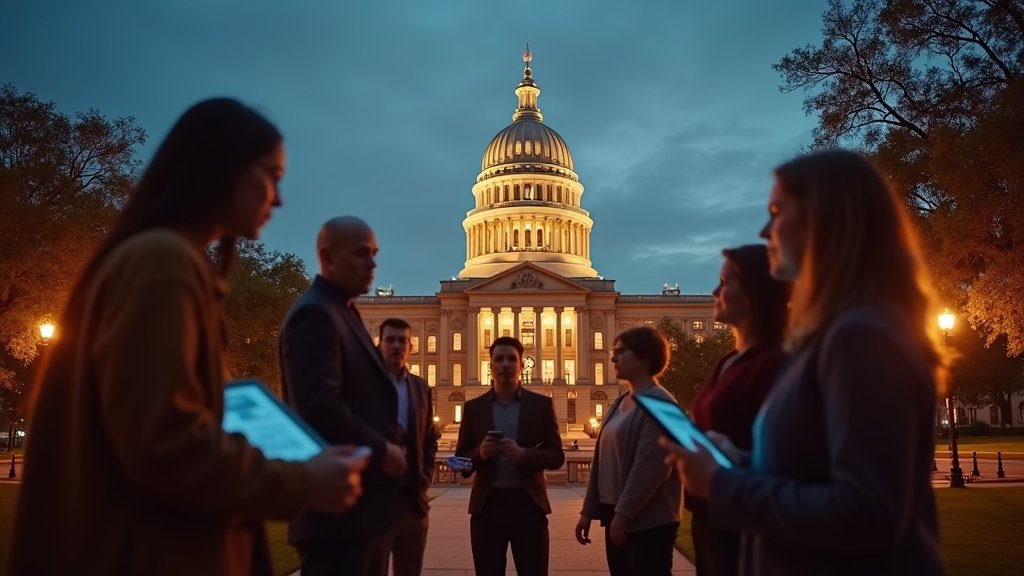Texas is ushering in a transformative era as over 800 new laws, passed during the 89th Legislative Session, officially took effect statewide on September 1, 2025. This extensive legislative package introduces significant reforms across education, state budgeting, social policies, and more, generating considerable buzz and sparking widespread discussion throughout the current news cycle in Texas.
Education Sector Undergoes Major Restructuring
A substantial portion of the new legislation focuses on the state’s education system, aiming to reshape classroom environments, parental involvement, and school funding.
Senate Bill 2 (SB 2) establishes a landmark $1 billion school voucher program, known as Education Savings Accounts, designed to provide state funds for eligible students to attend accredited private schools, cover educational materials, or fund therapies. This initiative, set to begin in the 2026-2027 school year, is part of a broader effort to offer school choice options for Texas families. Concurrently, House Bill 2 (HB 2) injects $8.5 billion into public education and allocates $4 billion for teacher and staff pay raises, signaling a significant investment in the public school system itself.
Changes to the classroom environment include the implementation of Senate Bill 10 (SB 10), which mandates the visible display of the Ten Commandments in every public school classroom. This law, however, is currently facing legal challenges, with a federal judge issuing temporary injunctions for several school districts; the Texas Attorney General’s office has indicated an appeal.
Further altering school operations, House Bill 1481 (HB 1481) institutes a ban on student use of personal communication devices, such as cell phones, during the school day. Schools must develop policies prohibiting such use, with a deadline for implementation by September 18, 2025. Students will be required to carry printed schedules instead of accessing them on their devices.
Parental rights in education are also expanded. Senate Bill 13 (SB 13) enhances parental oversight of school library materials, enabling parents to challenge content and participate in the creation of local school library advisory councils. Senate Bill 12 (SB 12), branded as the “Parents’ Bill of Rights,” extends the ban on Diversity, Equity, and Inclusion (DEI) initiatives to K-12 public schools. This law prohibits DEI policies from influencing hiring and training practices and restricts instruction on gender identity and sexual orientation. It also requires parents to opt their children into sex education courses and bans clubs based on gender identity or sexual orientation.
In terms of religious expression, Senate Bill 11 (SB 11) permits schools to designate time for voluntary prayer and Bible reading, subject to school board approval. For school safety, House Bill 33 (HB 33) mandates that law enforcement agencies establish crisis response policies and requires specialized training for responding to active shooter incidents in schools.
State Budget and Fiscal Policy Framework
The state’s financial landscape is shaped by Senate Bill 1 (SB 1), the $338 billion biennial budget that allocates over 70% to education and health and human services. Key provisions within the budget include substantial allocations for property tax relief, investments in water infrastructure, and enhanced border security measures, reflecting the administration’s core priorities.
Social and Cultural Policies See Significant Shifts
A number of new laws address prominent social and cultural issues. Senate Bill 33 (SB 33) prohibits cities and counties from using public funds to support individuals seeking abortions out of state. House Bill 229 (HB 229) codifies a binary definition of sex in state records, referencing biological reproductive systems. In healthcare, House Bill 46 (HB 46) significantly expands the state’s medical marijuana program, making it accessible to patients with chronic pain, traumatic brain injury, and Crohn’s disease, and permitting the use of vaporized products.
Ongoing Debates and Legal Scrutiny
The implementation of these laws has already sparked considerable debate. The requirement for Ten Commandments displays in classrooms faces ongoing legal challenges that could determine its broader constitutionality. Critics of the DEI ban in K-12 schools (SB 12) express concerns about its impact on inclusivity, student support services, and the potential for historical narratives to be presented incompletely.
As September 1, 2025, marks the start of a new legislative chapter, Texas residents will navigate the implications of these extensive legal changes, which collectively signal a significant shift in the state’s policy landscape.






